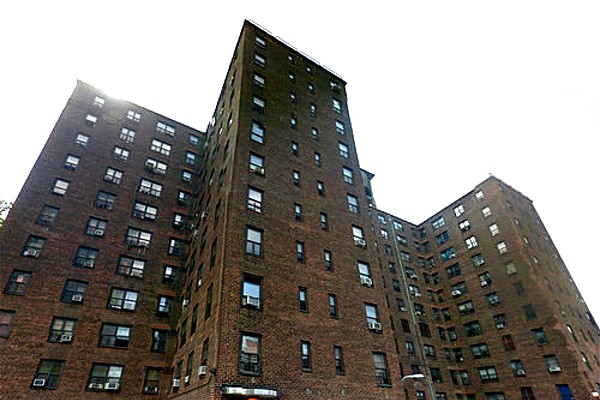
A new report released today, Vouchers to Nowhere: How Source of Income Discrimination Happens and the Policies that Can Fix It documents the significant barriers faced by homeless New Yorkers seeking to rent apartments with housing subsidies. The report, co-authored by Takeroot Justice and leaders at VOCAL-NY, is the result of a year-long research project led by people who have struggled to find housing with their subsidies. The research shows that laws designed to protect voucher-holders from discrimination are failing.
The report draws on data from 114 matched-pair tests, in which housing agents, brokers and landlords who had advertised rental listings were contacted both by someone presenting with employment income and by someone presenting with a housing subsidy. Research findings show a pattern of discriminatory practices by agents and landlords that make it nearly impossible for subsidy-holders to access safe, affordable housing:
- People with housing subsidies heard back from agents nearly three times less often than those with income from employment.
- When subsidy-holders did hear back from agents, they were more likely to be told that units were not available. Twenty-five percent of subsidy-holders were told units were not available, compared to only 6% of those with income from employment. Several subsidy-holders experienced blatant source of income discrimination, being told that subsidies were not accepted.
- Subsidy holders were less likely to be invited to view apartments than people with income from employment. Only 7% of subsidy-holders were ultimately invited to view an apartment, compared to 26% of those with employment income.
- Subsidy holders waited longer to hear back from agents than people with employment income. The average response time to those with employment income was 12.5 hours; for subsidy-holders, it was 30 hours.
The report also demonstrates ways in which subsidy programs are set up to fail. The most widely available housing subsidy in the city- the CityFHEPS voucher- does not cover apartments at the market rate in any of the five boroughs, meaning thousands of voucher-holders are competing for the same dilapidated and diminishing housing stock. The City’s efforts to direct people toward eligible apartments also fall short. Researchers obtained a list of brokers often given to people along with their CityFHEPs voucher and found that 28% of the phone numbers were no longer in service.
The report lays out comprehensive recommendations for reform, Researchers have called particular attention to two bills that have widespread support in the City Council. Intro 1339 would require critical know-your-rights information be distributed with vouchers, allowing people to recognize the problem and report it properly. Intro 146, which currently has a veto-proof majority, would raise the voucher amount to the market rate. Both bills could be passed quickly, and researchers say would have a huge impact on the problem.
“Our research shows a pattern of discriminatory practices by landlords and their agents against people seeking to rent apartments using housing vouchers, despite laws designed to protect against source of income discrimination,” said Irene Linares, research and policy coordinator at TakeRoot Justice. “Voucher-holders heard back less often, more slowly, and with fewer positive results than people with income from employment. This keeps safe and stable housing out of reach for vulnerable New Yorkers at a time they need it more than ever. The City must act by passing Intro 1399, Intro 146, and implementing the other policy recommendations outlined in our report.”
“I have a voucher. I wasn’t surprised by what we found in the report because I lived through it for three years. It always hurts to find out that in America, and even New York where we have so many different cultures, people will still be discriminated against because of the color of their skin or their income,” said Charisma White, a leader at VOCAL-NY and matched-pair tester in this project. “I hope the report wakes people in power up. They need to recognize this is a major problem we need to solve if we want everyone to have a dignified home.”
“Source of income discrimination has continued because the City has lacked the political will do anything about it,” said Reginald Brown, VOCAL-NY board member and former HASA (HIV/AIDS Services Administration) program recipient. “I hope that the law will be followed by realtors and landlords. The fine used to be so much that they wouldn’t think of acting this way, but now nothing hurts them. If you hit their profits, you’ll get their attention and change behavior.”
“For far too long, New Yorkers with subsidies have faced discrimination from greedy landlords, but without hard data to show just how pervasive this issue is,” said Joe Loonam, housing campaigns coordinator with VOCAL-NY. “We hope this report is a wake-up call to the leaders of this city, and proper resources will be allocated to combat landlord bias and greed. Passing intro 146, which has a veto-proof majority in the City Council, should be a priority for the Speaker this fall.”
Become a Harlem Insider!
By submitting this form, you are consenting to receive marketing emails from: Harlem World Magazine, 2521 1/2 west 42nd street, Los Angeles, CA, 90008, https://www.harlemworldmagazine.com. You can revoke your consent to receive emails at any time by using the SafeUnsubscribe® link, found at the bottom of every email. Emails are serviced by Constant Contact








